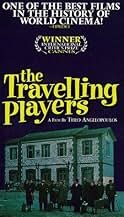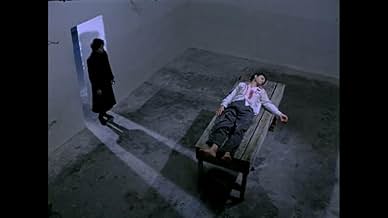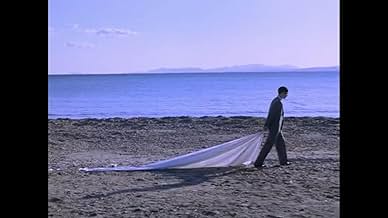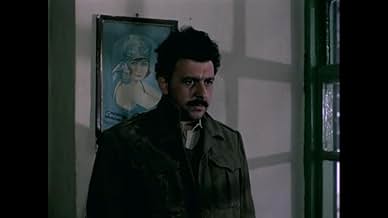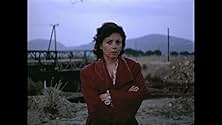O thiasos
- 1975
- 3h 50m
ÉVALUATION IMDb
7,9/10
4,5 k
MA NOTE
Ajouter une intrigue dans votre langueGreece, 1939-1952: Fascist, Nazi, and Communist conflict, as seen through the eyes of a family of travelling provincial players.Greece, 1939-1952: Fascist, Nazi, and Communist conflict, as seen through the eyes of a family of travelling provincial players.Greece, 1939-1952: Fascist, Nazi, and Communist conflict, as seen through the eyes of a family of travelling provincial players.
- Prix
- 12 victoires et 2 nominations au total
Histoire
Le saviez-vous
- AnecdotesThe whole film is accomplished in around 80 shots.
- Citations
Elektra's Father: [before he is executed by the Germans] I came cross the sea, from Ionia. Where did you come from?
Commentaire en vedette
"The Travelling Players", one of the early films of Theo Angelopoulos, shows the vast difference between the talented rising director of 1975 that had something to say, and of the bourgeois famous director of 1998 ("Eternity And A Day") that won the Cannes award but had nothing left to say.
A sprawling epic running at around 4 hours, the film follows a group of touring actors performing a theatrical play across Greece between 1939 and 1952. The focus is on the troubled modern history of Greece during the period (a fascist dictatorship, resistance against the Italians, German occupation, civil war), seen through a series of warped desolate sequences drenched in languor, and also an apotheosis of traditional folklore, music, theater, rural and urban landscapes. Most of these scenes exhibit a rare poetical sensibility, while a few are a bit clumsy, but still interesting.
Couple that with the drama that unfolds within the group of players, and you've got a true masterpiece. Basically what we see is a loose adaptation of Aeschylus' ancient tragedy "Oresteia" (the father Agamemnon, the adulterous mother Clytamnestra, her lover Aegisthus, the avenging daughter Elektra, the avenging son Orestes etc). In the end, the group of actors stands severely rearranged through a painful and dividing historical period, shadows of themselves in a shadow of a country. The film ends as a perfect circle just the way it began, a metaphor for life itself.
A sprawling epic running at around 4 hours, the film follows a group of touring actors performing a theatrical play across Greece between 1939 and 1952. The focus is on the troubled modern history of Greece during the period (a fascist dictatorship, resistance against the Italians, German occupation, civil war), seen through a series of warped desolate sequences drenched in languor, and also an apotheosis of traditional folklore, music, theater, rural and urban landscapes. Most of these scenes exhibit a rare poetical sensibility, while a few are a bit clumsy, but still interesting.
Couple that with the drama that unfolds within the group of players, and you've got a true masterpiece. Basically what we see is a loose adaptation of Aeschylus' ancient tragedy "Oresteia" (the father Agamemnon, the adulterous mother Clytamnestra, her lover Aegisthus, the avenging daughter Elektra, the avenging son Orestes etc). In the end, the group of actors stands severely rearranged through a painful and dividing historical period, shadows of themselves in a shadow of a country. The film ends as a perfect circle just the way it began, a metaphor for life itself.
- alexx668
- 16 déc. 2006
- Lien permanent
Meilleurs choix
Connectez-vous pour évaluer et surveiller les recommandations personnalisées
- How long is The Travelling Players?Propulsé par Alexa
Détails
Contribuer à cette page
Suggérer une modification ou ajouter du contenu manquant



